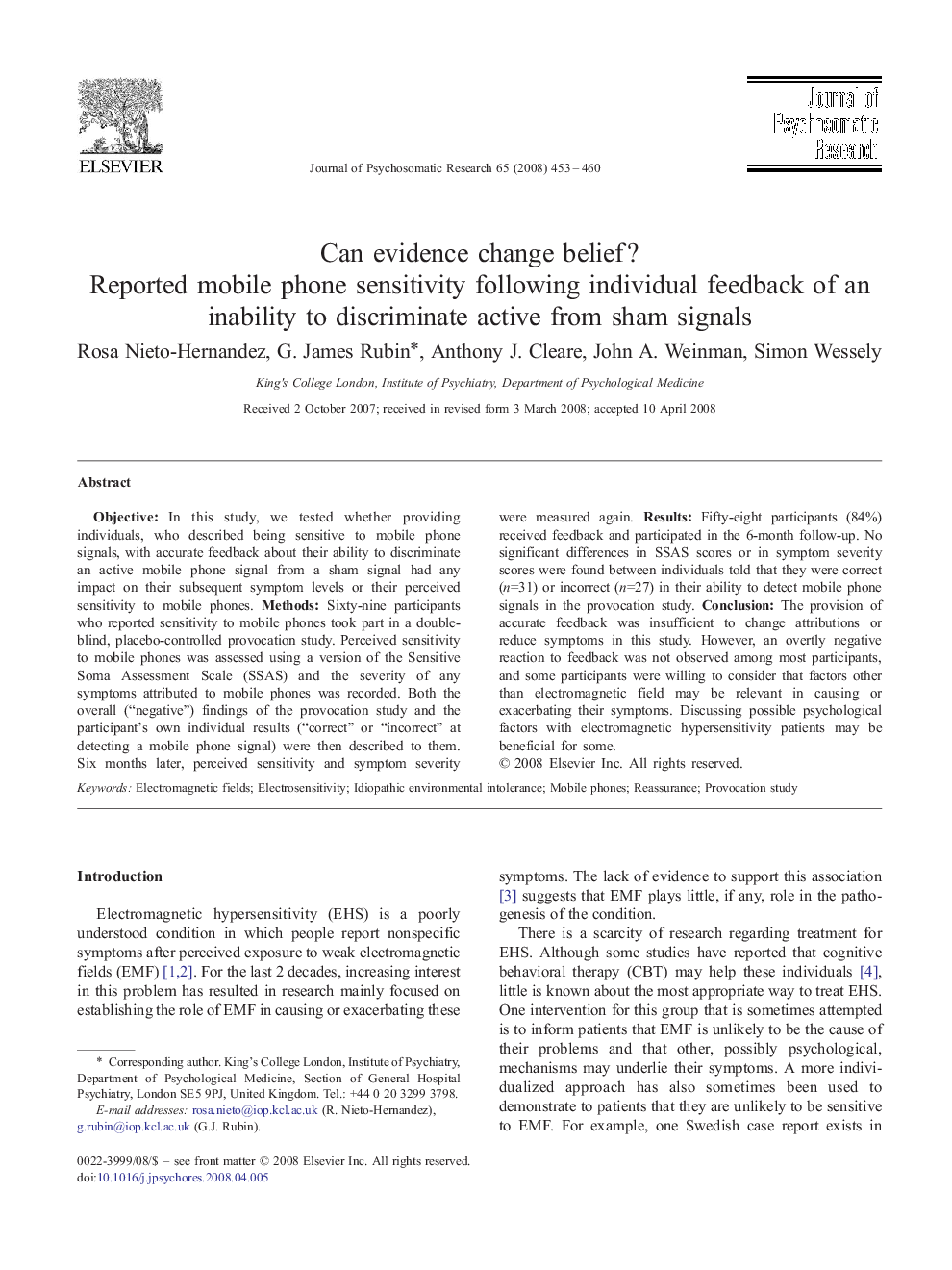| Article ID | Journal | Published Year | Pages | File Type |
|---|---|---|---|---|
| 949971 | Journal of Psychosomatic Research | 2008 | 8 Pages |
ObjectiveIn this study, we tested whether providing individuals, who described being sensitive to mobile phone signals, with accurate feedback about their ability to discriminate an active mobile phone signal from a sham signal had any impact on their subsequent symptom levels or their perceived sensitivity to mobile phones.MethodsSixty-nine participants who reported sensitivity to mobile phones took part in a double-blind, placebo-controlled provocation study. Perceived sensitivity to mobile phones was assessed using a version of the Sensitive Soma Assessment Scale (SSAS) and the severity of any symptoms attributed to mobile phones was recorded. Both the overall (“negative”) findings of the provocation study and the participant's own individual results (“correct” or “incorrect” at detecting a mobile phone signal) were then described to them. Six months later, perceived sensitivity and symptom severity were measured again.ResultsFifty-eight participants (84%) received feedback and participated in the 6-month follow-up. No significant differences in SSAS scores or in symptom severity scores were found between individuals told that they were correct (n=31) or incorrect (n=27) in their ability to detect mobile phone signals in the provocation study.ConclusionThe provision of accurate feedback was insufficient to change attributions or reduce symptoms in this study. However, an overtly negative reaction to feedback was not observed among most participants, and some participants were willing to consider that factors other than electromagnetic field may be relevant in causing or exacerbating their symptoms. Discussing possible psychological factors with electromagnetic hypersensitivity patients may be beneficial for some.
